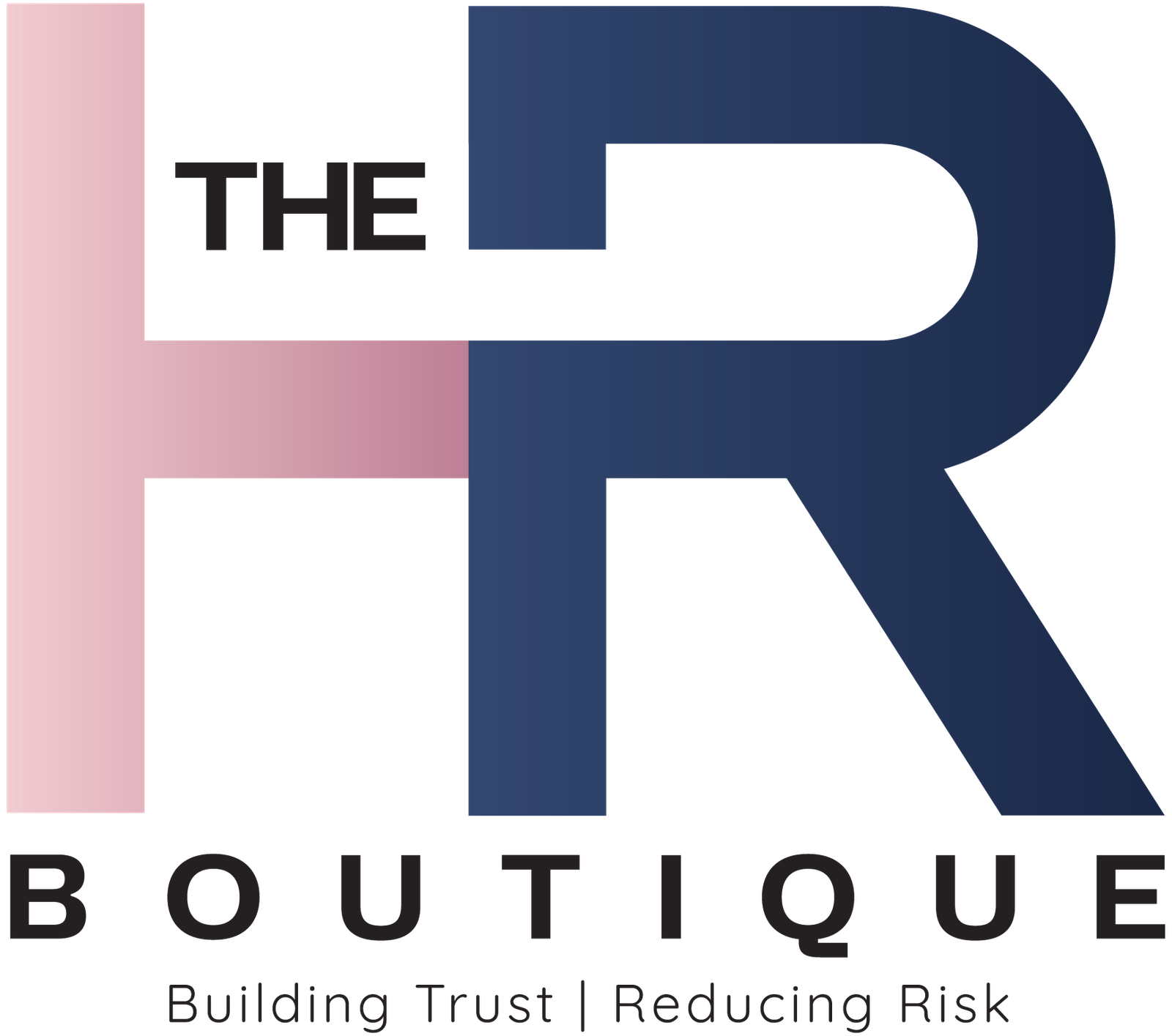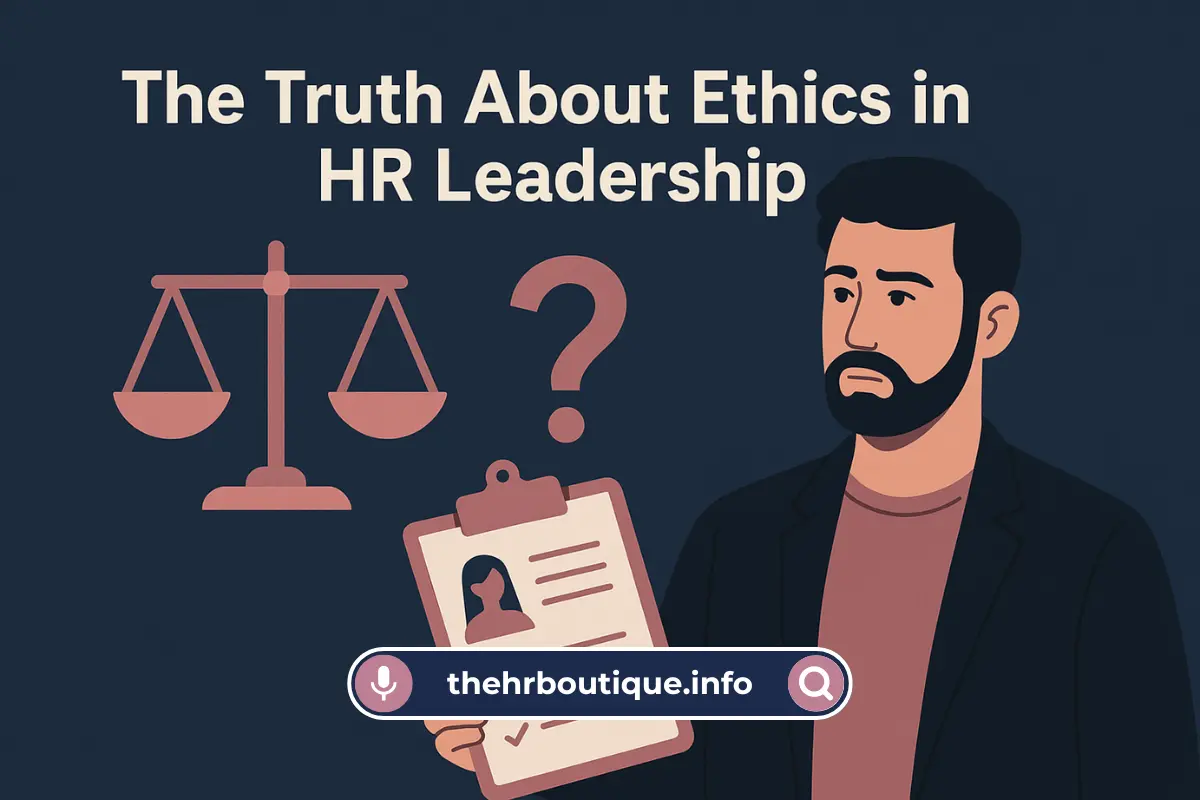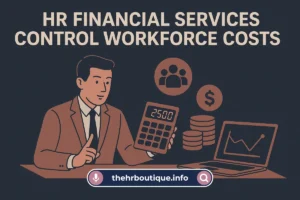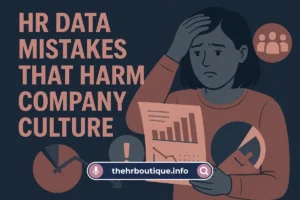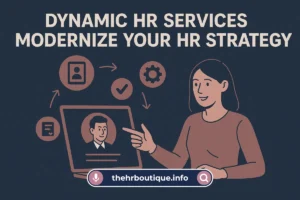Let me tell you about the worst HR director I ever met.
This was years ago at a mid-sized tech company. The place had all the right policies on paper—diversity statements, open-door policies, you name it. Then one day, an employee came forward with proof that a senior manager was sexually harassing multiple women.
Know what HR did?
They promoted him.
Not because they thought he was innocent. Not because the victims were lying. Because he brought in big clients, and leadership didn’t want to rock the boat.
That’s the moment I realized: Most companies don’t need better HR policies. They need HR people with spines.
Why Ethics Training Usually Fails?
We’ve all sat through those awful compliance trainings where:
- Some lawyer drones on about anti-discrimination laws.
- You watch a 90s-era video with bad acting.
- Everyone signs a form saying they understood exactly nothing.
Here’s the truth nobody says out loud: You can’t PowerPoint your way to ethical behavior.
Real ethical HR isn’t about memorizing laws. It’s about:
- Having the guts to say “This is wrong” when everyone else is silent
- Caring more about people than corporate politics
- Understanding that legal doesn’t always mean right
What Ethical HR Looks Like in the Wild?
I’ll never forget Maria, an HR manager at a manufacturing plant. When COVID hit, corporate sent down a mandate: “Everyone back on-site Monday, no exceptions.”
Maria knew this would:
- Force immunocompromised employees to choose between health and paycheck.
- Likely cause outbreaks (they had 500 people in close quarters).
- Violate several safety guidelines.
So she did something radical—she refused.
She compiled data on outbreak risks, proposed a phased return plan, and told leadership: “I won’t put my name on something that could kill people.”
That’s ethical HR. Not policy enforcement. Not compliance checklists. Moral courage.
How to Actually Develop This (No BS)?
1. Stop Hiring Policy Robots
Most HR job descriptions want:
- 5 years experience with [obscure software].
- SHRM certification.
- “Ability to enforce company policies”.
What they should want:
- Has ever stood up to authority.
- Makes decisions with empathy.
- Can spot when “company policy” is actually immoral.
Try this interview question:
“Tell me about a time you had to choose between following policy and doing what was right. What did you do?”
The best answers involve some version of “I broke the rules and I’d do it again.”
2. Create a “Red Flag” Mentorship Program
Pair junior HR staff with your most battle-scarred veterans to discuss:
- The time they had to fire the CEO’s nephew for harassment.
- How they handled a whistleblower retaliation case.
- What really happens when you report something to Ethics Hotline.
Pro Tip: Record these conversations (anonymously) and use them as training. Nothing beats real war stories.
3. Practice Ethical Dilemmas Like Fire Drills
Quarterly scenario training where HR teams must handle:
- “The CFO wants to lay off all employees over 50 before the IPO”.
- “An exec is having an affair with their assistant and giving them promotions”.
- “Your top salesperson keeps making racist ‘jokes’ but hits quota”.
Key rule: No hypotheticals. Use real cases from your industry (names changed).
The Hard Truth Nobody Wants to Hear
Most HR departments aren’t set up to be ethical. They’re set up to:
- Protect the company from lawsuits.
- Keep employees just happy enough not to unionize.
- Enforce leadership’s bad decisions with a smile.
Fixing this requires:
- Promoting HR leaders who’ve shown moral courage (not just those who avoid lawsuits).
- Giving HR real power to veto unethical decisions.
- Measuring HR on employee trust, not just compliance metrics.
Final Thought
The best HR leader I know has a sign above her desk:
“If your job never gets you yelled at by executives, you’re not doing it right.”
That’s the standard. Not perfect policy adherence. Not making everyone happy. Being willing to be unpopular for the right reasons.
Because at the end of the day, HR isn’t about protecting the company from its employees. It’s about protecting employees from the company when necessary.
Question for You:
What’s the most ethical (or unethical) thing you’ve seen HR do? War stories welcome in the comments.
